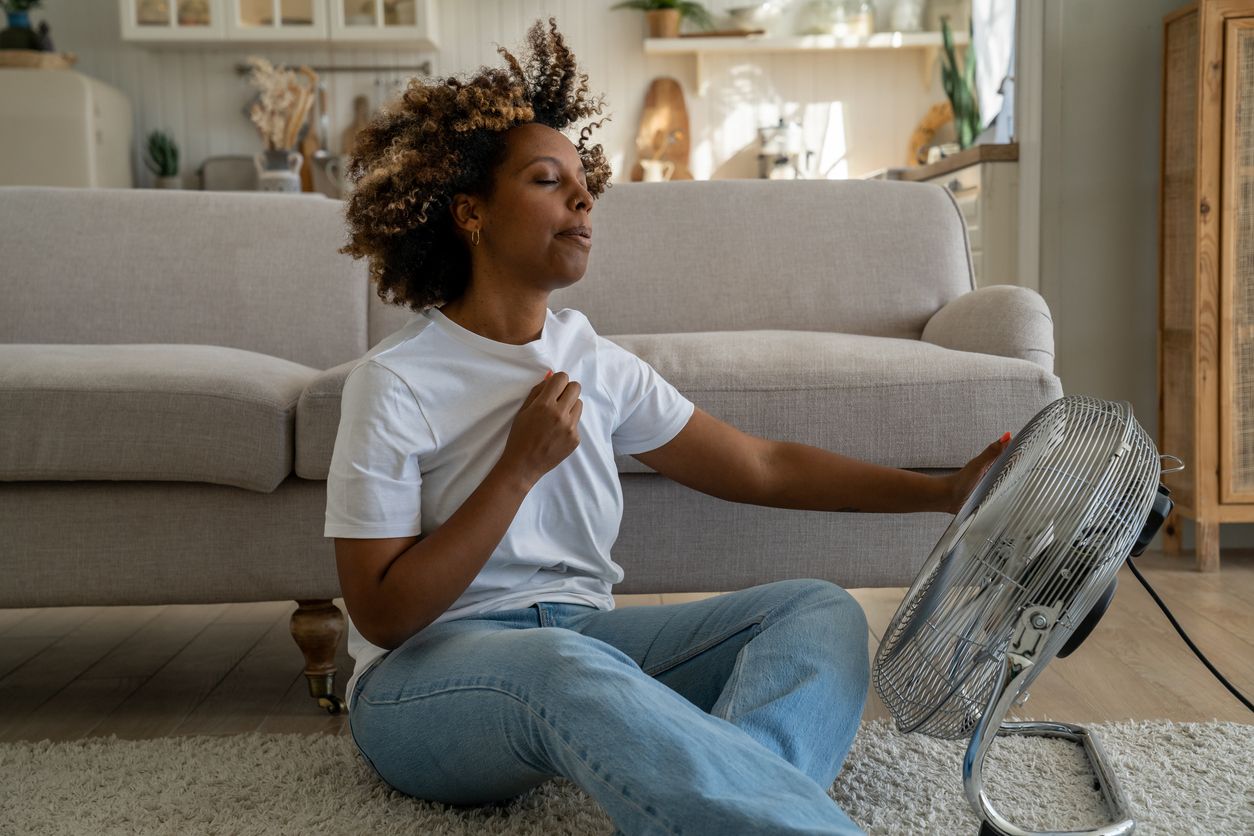Managing MS in the Heat
Over 60% of people with MS experience problems with heat sensitivity. Heat and cold sensitivity is where MS symptoms are exacerbated by extremes of temperature – this could be hot or cold temperatures (known as Uhthoff’s phenomenon). Triggers can include hot baths, hot weather or heatwaves, cold snaps, exercise, central heating, driving with the window open.

Causes and Symptoms
It is thought that the causes for people with MS lies in how temperatures affects the speed that nerve impulses can travel along your nerves, in particular this may affect where demyelination and nerve damage has happened. It is also possible that if there is a lesion in the part of the brain responsible for temperature control, the brain may not respond to temperature changes with the appropriate reaction e.g. shivering or sweating. Reported symptoms of heat sensitivity generally tend to include increases in fatigue, blurred vision, and cognitive symptoms (i.e. concentration and memory can suffer), and loss of balance.
Reported symptoms of heat sensitivity generally tend to include increases in fatigue, blurred vision, and cognitive symptoms (i.e. concentration and memory can suffer), and loss of balance.
Cold sensitivity can impact nerve pain, mobility, spasms, depression, fatigue, spasticity and stiffness. Walking in the cold can be more difficult and experiencing cold sensitivity during poor weather with less light during winter can be wearisome.
Although symptoms may worsen and you may be more uncomfortable for a short period, hot and cold triggers do not cause lasting damage. Once the heat or cold subsides, your affected symptoms should improve.
Managing the Heat
Below are some tips for handling hot weather to help prevent symptoms from getting too bad.
- Shut windows and pull down the shades when temperatures are at their hottest, and open windows for ventilation when it is cooler. This is because a well-insulated home allows cool air to remain inside, keeping the hot air outside.
- Avoid the heat: stay out of the sun and do not go out between 11 am and 3 pm (the hottest part of the day).
- Keep rooms cool by using shades or reflective material outside the windows. Alternatively, you can use light-coloured curtains and keep them closed (metallic blinds and dark curtains can make the room hotter as they attract heat).
- Have cool baths or showers and splash yourself with cool water.
- Drink cold drinks regularly, such as water and diluted fruit juice. Avoid excess alcohol, caffeine (tea, coffee, and cola) or drinks high in sugar.
- Adequate fluid intake is essential to prevent dehydration, indeed too little fluid intake can potentially make you feel lethargic, experience brain fog, headaches and generally feel unwell. Drinking up to eight glasses of fluid a day can help flush out bacteria, assist with good kidney function and can contribute to feeling better in yourself.
- Adapt any exercise routines to avoid raising your core temperature too much, such as strength training, yoga, or indoor swimming.
- Listen to alerts on the radio, TV, and social media about keeping cool.
- Plan ahead to make sure you have enough supplies, such as food, water, and any medications you need to avoid having to leave the house during the highest temperatures.
- Identify the coolest room in the house so you know where to go to keep cool.
- Wear loose, cool clothing, a hat, and sunglasses if you go outdoors (as well as SPF of course).
- Use cooling products, such as cool ties, gel pads, cool packs and ice towels to keep yourself cool as and where necessary. A cool pillow at night can also help during sleep. Depending on your budget, equipment such as air conditioning, room fans (with a bowl of ice in front of them) and cool mats, can also help to keep rooms cool.
If you need help gaining access to equipment there is advice available through the NHS. Please also see our article on dealing with cold temperatures if you are affected by this.
This area of MS research needs continual study, with the most up-to-date papers published in 2018 and 2022, respectively.
If you have a project that may benefit people living with Multiple Sclerosis, you may be eligible to apply for funding or one of our bursaries. Take a look at our professional pages for more information.

